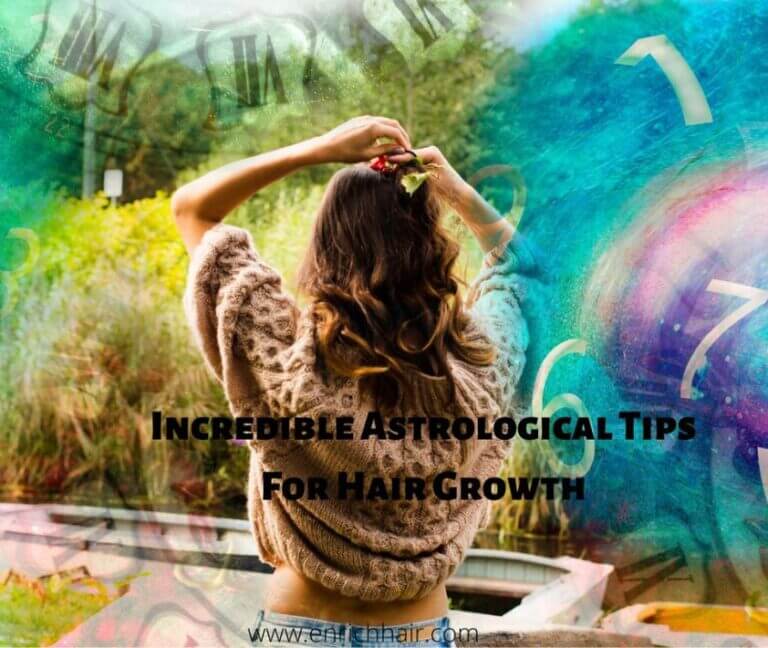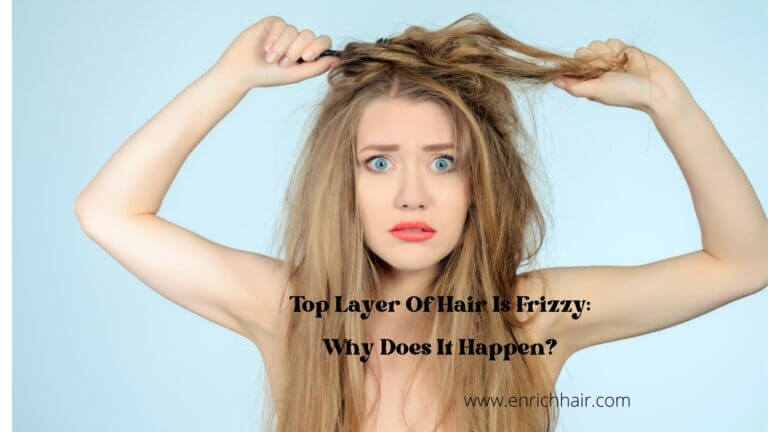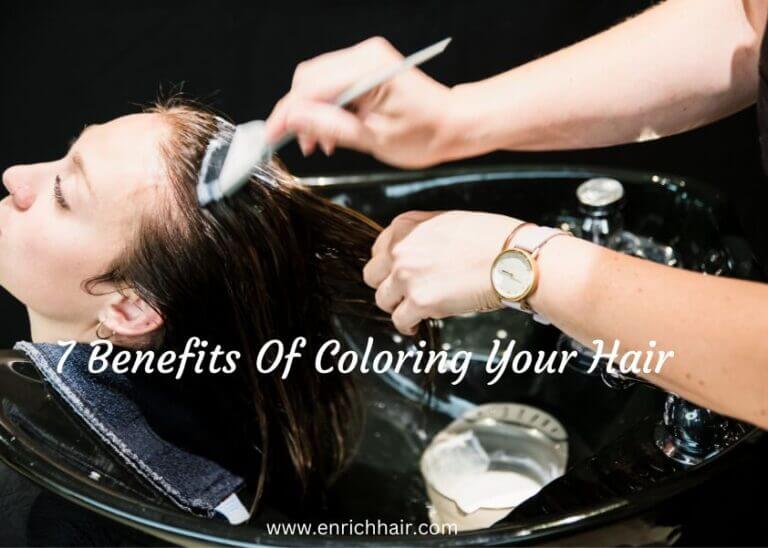Eating Disorders And Hair Loss
Table of Contents
Many times, those who have hair loss have a poor nutrient intake or may not be getting enough of the special nutrients that are needed for healthy hair growth. Here are some nutrients you may want to consider adding to your diet because eating disorders and hair loss go side by side. Healthy hair can be a challenge for anyone. This is because most of the food we eat today is not as nutrient-rich as it should be. This article will go into the details of what are the right foods to eat in order to grow healthy hair. So here we are going to discuss all the factors of eating disorders and hair loss.
Eating Disorders And Hair Loss: How Are They Linked?
Hair growth is directly tied to the way we nourish our bodies. The nutrients that are needed for healthy hair include vitamins A, C, D, and E, zinc and selenium, bioflavonoids, protein, and essential fatty acids. Hair loss can take place for a number of reasons. It may have to do with genetics, certain illness, stress, improper diet, or some medications. Even if you do not have any of the aforementioned issues, you may still be dealing with hair loss because of a vitamin or nutrient deficiency. The best way to know if this is the case is to have your blood tested. A blood test will tell you if your body is lacking any critical hair growth nutrients.
Healthy Hair Is Directly Tied To Healthy Eating.
Hair is the crowning glory of all women. Healthy hair, on the other hand, is the natural reflection of a healthy lifestyle. While it is true that genetics play a large role in determining whether a woman will have healthy hair or not, it is also true that eating habits have a greater effect on the health of a woman’s hair. It is important that a woman is aware of the connection between her eating habits and her hair. It is also important that she understands that the ideal diet for healthy hair is one that is rich in nutrients. Eating disorders and hair loss are problems not very easy to fix.
What Causes Hair Loss And How To Fix It.
Hair loss or alopecia is one of the most common problems that people face today. It affects men and women of all ages and races. The most common form of this condition is pattern baldness or androgenetic alopecia. If you are one of the millions of people who are suffering from hair loss then this article will help you to understand the causes of this condition and how to stop it.
A lot of people don’t understand hair loss, especially when they are losing it. Hair loss is a very serious problem and can affect both men and women of any age, race, and ethnicity. A lot of people think that hair loss is just a symptom of a person being old or having a bad diet, but in reality, many other factors can contribute to hair loss.
Hair loss can be temporary or permanent and can have psychological and emotional effects on sufferers. It can also hurt people’s self-image and confidence. Some of the most common factors are either medical conditions or bad habits. Some of the factors that cause hair loss are Stress Depression Lack of vitamins and minerals Medical conditions Like cancer Treatment for cancer Chemotherapy Hormonal problems Severe hair loss can be caused by the following: Medical conditions: thyroid issues, lupus, alopecia areata, lupus, etc. Hormones: birth control, menopause, stress, etc.
Solution
- Biotin 10,000 mcg, Collagen, Keratin, and Hair Vitamins: Codeage Hair vitamins offer 10,000 mcg of biotin, hydrolyzed and wild-caught marine collagen of type I & III, keratin, and vitamins in an extra complete and all-in-one hair vitamins solution. This hair supplement features vitamins A, B6, B12, C, D3, and E. Codeage hair, skin, and nails vitamins also include omega-3 with plant-based EPA and DHA.
- Enzymes, Minerals, and Probiotics for Hair: This hair supplement and vitamin B complex also features zinc, pantothenic acid, iodine, selenium, niacin, inositol, and folate! Codeage biotin for hair growth support* capsules also delivers a hair health probiotic blend with seven different probiotic strains and digestive enzymes. Vitamins and minerals may play a role in supporting normal hair follicle development.*
- Hair Growth & Shine Complex: Codeage healthy hair growth support and vitamin formula also includes a series of plants and fruit to further enhance its hair wellness and thickness support formula.* This biotin 10000mcg formula adds organic ashwagandha, organic amla berry, saw palmetto, bio-fermented turmeric curcumin, and even Himalayan Shilajit. This biotin collagen supplement is designed for all hair colors and hair types. It can be used as hair vitamins for women and men.
- Hyaluronic Acid, Resveratrol, BioPerine: Codeage Hair vitamins formula also offers hyaluronic acid, resveratrol, L-lysine, L-proline, and BioPerine black pepper to help support the absorption of certain nutrients. This multivitamin for hair formula, which includes vitamin C, vitamin B6, and vitamin B12 as methylcobalamin, also features silver ear mushroom and choline. Codeage hair pills formula is a comprehensive hair vitamin solution.
- Manufactured in the USA and Non-GMO: Codeage Hair vitamin is non-GMO, and is free of artificial colors, sweeteners, or preservatives. This hair health formula doesn’t contain gluten, soy, shellfish, or binders. This formula is manufactured in the USA in a cGMP facility and third-party tested. Each bottle of Codeage Hair comes with one month of supply.
- ADVANCED HAIR SUPPORT FORMULA: Folitonic is a specialized hair supplement crafted to support hair growth and vitality. Our key ingredients includes biotin, saw palmetto, and other hair vitamins, making it an ideal choice for anyone seeking a comprehensive approach to hair care.
- RICH IN BIOTIN AND SAW PALMETTO: Our formula is enriched with high levels of Biotin, a key nutrient known for supporting hair strength, and Saw Palmetto, recognized for its potential in hair care. Ideal for anyone looking for biotin supplements or saw palmetto for women and men, aiming to nurture their hair.
- DHT BLOCKER FOR EFFECTIVE HAIR LOSS MANAGEMENT: Folitonic's DHT blocker effectively addresses hair loss in both men and women. By targeting DHT, a key factor in hair loss, this hair loss supplement and dht blocker promotes hair regrowth and thickness.
- NUTRIENT-RICH FOR OVERALL HAIR HEALTH: As a comprehensive hair growth product, this supplement not only targets hair loss but also provides essential nutrients to support hair health. It's an all-in-one hair vitamin that combines the benefits of a biotin supplement, hair loss vitamins for women, and hair growth supplements for men, ensuring your hair receives the care it deserves.
- DEDICATION TO QUALITY: Committed to delivering only the best, all our products are manufactured in a cGMP certified facility. Each batch undergoes rigorous third-party testing, ensuring our high-quality standards are consistently met. Please note, packaging design may vary.
- GET FULLER THICKER HAIR with TRUSTED HAIR GROWTH SUPPLEMENT for Women and Men. Support optimal thyroid function, liver health, stress, vitamin D, and iron levels. Uses patented hair growth ingredients: Opti MSM and clinically developed cellular support with 5000mcg of Biotin, Saw Palmetto, Hyaluronic Acid, and Vitamin D3, along with 28 herbs and vitamins
- GLUTEN FREE EXTRA STRENGTH HAIR LOSS SUPPLEMENT and VEGETARIAN FORMULA ENHANCES Thicker Fuller Hair Growth, Stronger Nails, Anti-Aging for the skin with high quality ingredients. SUPPORTS Thyroid production of Iodine from Natural Atlantic Kelp and Helps Cleanse the Liver with Alpha Lipoic Acid and Fo-Ti.
- TARGET HAIR LOSS due to Nutritional Deficiencies, Thyroid issues, Low hemoglobin, Stress, Low Vitamin D, Medications, Poor diet, Veganism, and Vegetarianism in Men and Women. Reinforces Skin Health with L - Cysteine and Pine Bark Extract.
- SCIENTIFICALLY RESEARCHED, 3RD PARTY TESTED, and CERTIFIED. TRICHOLOGIST DEVELOPED. Manufactured in a Southern California with Global Ingredients, GMP-Certified Facility. Gluten Free, Soy Free, Wheat Free, and Vegetarian Hair Growth Pills. la mejor vitamina para el crecimiento del cabello
- 100% MONEYBACK HAIR GROWTH PRODUCTS GUARANTEE. More than Hair, Skin, and Nail Vitamins, FoliGrowth contains ample servings of Powerful Ingredients that replenish other vitamins like B Complex, Multi-Vitamin, Anti-Vitamin, Biosil, Nutrofol, Viviscal, Thyroid Support, Adrenal Supports, and other Hair, Skin, and Nails Vitamins.
How Eating The Right Foods Can Grow Your Hair.
If you suffer from Hair loss and eating disorders, you may have noticed that your hair looks different. While this is normal, you may be surprised by how much your hair is affected by eating disorders. Have you ever wondered why some people seem to have more hair than others? It’s mostly because of the foods they consume.
Diet can cause your hair to become dull and thin, or it can make it lustrous and long. In some cases, diet can even cause hair loss. You can blame your parents for your bad hair habits because genetically, you are predisposed to certain hair characteristics. You can blame your parents for your bad hair habits, because genetically, you are predisposed to certain hair characteristics, like the thickness of the hair shaft.
Importance Of Nutrients For Hair Growth.
I’m sure you have heard the saying “You are what you eat” or “You are what you drink”. I think that saying can apply to many things in life but when it comes to hair health, I believe that you are what you eat and what you put in your hair. The truth is, your hair is not dead – it is alive and it can absorb the nutrients that you put in it. And if you are not eating well, your hair is not getting the nutrients it needs to be healthy.
How To Get Enough Of The Right Nutrients.
When it comes to eating disorders, hair loss is something that is hardly ever mentioned. It’s something that is considered a taboo subject and many people just try to ignore it. This blog will look at how eating disorders and hair loss are connected, and how they can be solved. Eating disorders such as anorexia, bulimia, and binge eating are on the rise in the United States. Studies show that the average American woman will not meet the daily recommended intake of iron, calcium, and vitamin D. It is important to maintain a healthy diet and include a wide variety of foods in your diet to ensure you are getting the right amount of nutrients.
Conclusion
Eating disorders and hair loss a very serious issues for young women, who obsessively worry about their appearance. Most of us have experienced a time when we have worried about losing our hair. If you are struggling with an eating disorder, this is something that you need to be aware of. Hair loss can be a very serious sign of an eating disorder. If you are struggling with hair loss, you need to talk to someone. We suggest that you contact a treatment center to discuss your problems with eating disorders and hair loss.










